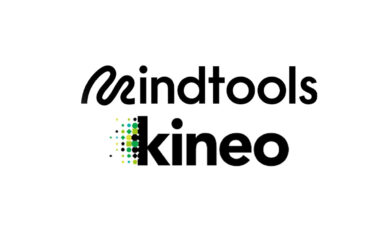 It’s said that most people spend more time planning a vacation than they do planning their lives. But a good life plan, which you return to and amend regularly, can be a very useful tool for career success. In the words of executive coach and author Daniel Harkavy, it makes you “more proactive and intentional” and less “reactive and unintentional.”
It’s said that most people spend more time planning a vacation than they do planning their lives. But a good life plan, which you return to and amend regularly, can be a very useful tool for career success. In the words of executive coach and author Daniel Harkavy, it makes you “more proactive and intentional” and less “reactive and unintentional.”
At Mind Tools, we’ve developed our own Life Plan workbook, which has helped thousands of people to achieve personal and career goals. So we were intrigued to read about a different approach in Harkavy’s new book, “Living Forward: A Proven Plan to Stop Drifting and Get the Life You Want,” co-authored with Michael Hyatt.
His plan is based on the idea of “life accounts,” each representing a different segment of your life. So you might have one for your spouse, another for your career, another for your finances, and so on. It doesn’t matter how many you have or what you call them, as long as they mean something to you.
“Many people will meet with a financial planner and they’ll put together goals for their retirement account, what type of net worth they want to have in a specific retirement account at some point in the future,” Harkavy explains, in our Expert Interview podcast.
“It’s really wise for us to take that construct and then look at it in the context of all areas of our life, and what kind of a balance do you want to have in your marriage account, in your health account, in your family account, in your financial account, in your professional account. When you can see where you are at, versus where you want to be, it gives you the ability to adjust things… to close the gap from today to where you want to be.”
The starting point is to write your own eulogy, which helps you to ”come to grips with the fact that your days are numbered.“ If you’re more aware of your own mortality, Harkavy reasons, “you’ll make wiser decisions each and every day, because you know there’s no guarantee of tomorrow.“
With this bird’s-eye view on your priorities, you then name the life accounts that will make up your life plan, assess the health of each one, and put them in order of importance. Then you start action planning.
Harkavy sees the planning stage as a five-step process, starting with a purpose statement. He uses the account named for his wife, Sheri, as an example. “My purpose as husband to her is to bring oneness to us. It’s to lift her up. It’s super clear how I am to respond, why I am here, why I am in this account.”
Then comes envisioning the future for the account in question.
“We cast a vision that’s clear and compelling,” Harkavy explains. “When we pull on head and heart, and we draw on emotion… it’s easier for us to make changes. We make better decisions when what we see in the future fully grabs us.”
Third, he suggests that you identify an inspiring quote that resonates with your purpose for this account, a memorable phrase that will keep you on course and help you to live out the actions you plan for your progress.
The fourth step, for each account, is to spell out the current reality. For Harkavy, this is “a good, quick snapshot of where I am today, and that helps me to see if there’s any gaps between current reality versus where I want to be at some point in the future.“
Lastly, you need to decide specific commitments, actions that will “proactively and intentionally add value to that account.”
Sticking with his Sheri account, Harkavy gives details: “It’s Monday afternoon dates with her. It’s 30 minutes of eye-to-eye, ear-to-ear, no TV, no interruptions, just connecting at the end of the day. It’s our monthly getaways. It’s the specific things that I can take from my life plan and put into my calendar because they’re now a priority. They’re so important that I’ll schedule them, so that I’m reminded of them continually and have the ability to intentionally add value to an account that is really important to me.“
Once you’ve completed this five-step process for all of your accounts, you should end up with a document that’s eight to 15 pages long. This your life plan, which, importantly, is always a work in progress. Regular revisions are essential, because life is always in flux.
Another strong recommendation is to take a full day to start and complete this process, Harkavy says, because “if we piecemeal it together, we’re going to come up with some Word document that has no power.” He expands on this idea in this audio clip, from our Expert Interview podcast.
Listen to the full Expert Interview in the Mind Tools Club ¦ Install Flash Player.
Do you have a life plan? If so, how does it help, at home and at work? Join the discussion below!




